Politics is the study of the processes that define, produce, and distribute power, authority, and values.
Politics as a Field of Study
Political studies inherently subvert the naturalness and inevitability of what is, by looking historically and cross-culturally at what has been in other times or places, and what might be.
Politics is a heterogeneous scholarly field that utilizes a range of research methods and a variety of diverse forms of evidence, both qualitative and quantitative. The discipline analyzes political processes at individual, local, national, and international levels. Students study topics such as states, political institutions, social movements, political ideologies, identities, cooperation, conflict, war, and diplomacy.
Our courses engage multiple disciplinary approaches and cultural perspectives, stressing the importance of the diversity of political experience, including a global range of politics that address the roles of race, class, ethnicity, sexuality, and gender in political life.
Department Chair: John Baughman, Professor of Politics (jbaughma@bates.edu)
Associate Chair: Steve Engel, Professor of Politics (sengel@bates.edu)
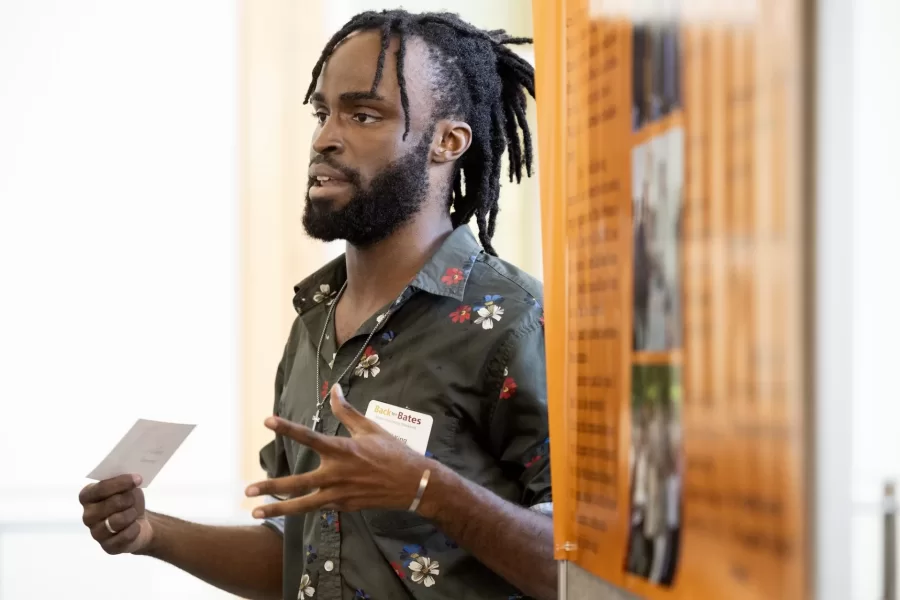
Students present a poster session about their summer research on Friday afternoon, Sept. 27, 2024, during Back to Bates Weekend, as families and alumni arrive on campus to register and spend time together.
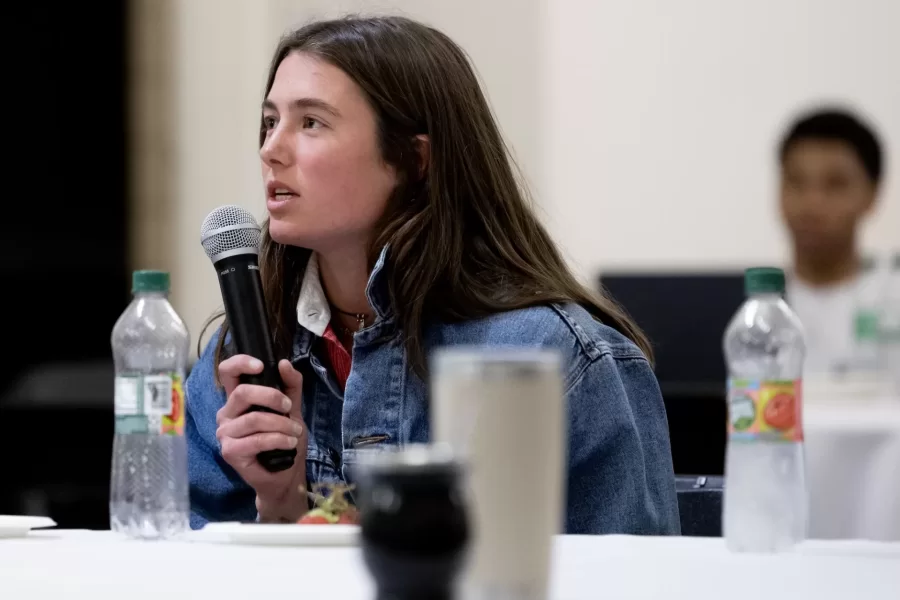
In the wake of the latest presidential election, three Bates politics professors with complementary expertise helped students understand the outcome of Tuesday’s election.
The trio, Professor of Politics John Baughman, Professor of Politics Stephen Engel, and Associate Professor of Politics Clarisa Pérez-Armendáriz met with around 75 students in Memorial Commons in Chase Hall.
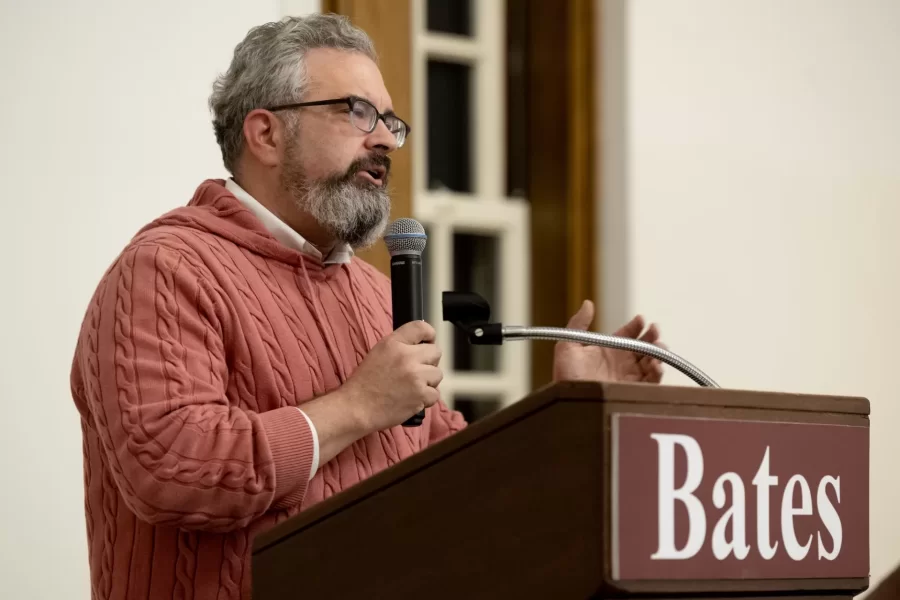
In the wake of the latest presidential election, three Bates politics professors with complementary expertise helped students understand the outcome of Tuesday’s election.
The trio, Professor of Politics John Baughman, Professor of Politics Stephen Engel, and Associate Professor of Politics Clarisa Pérez-Armendáriz met with around 75 students in Memorial Commons in Chase Hall.
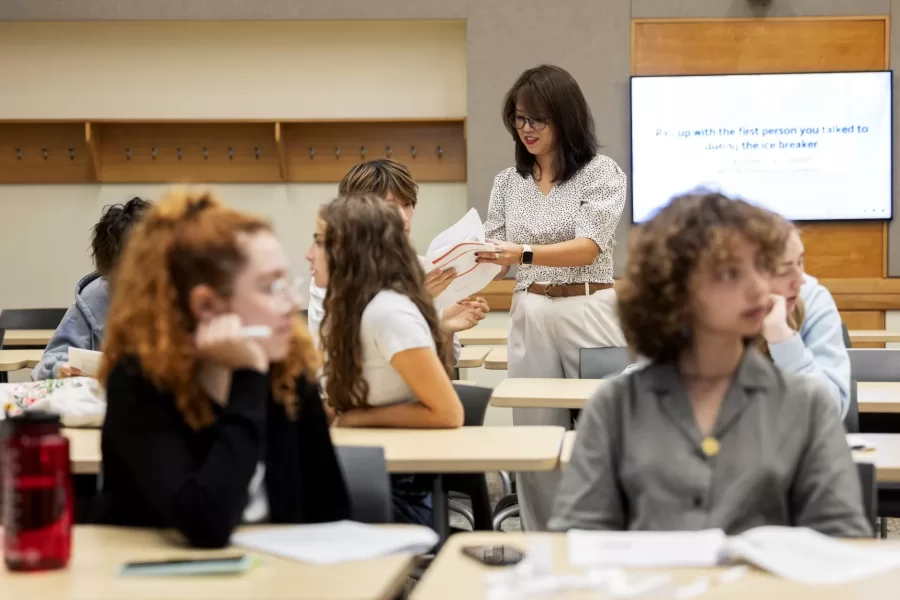
Moments from the First-Year Seminar Meeting and Advising with Seulgie Lim, assistant professor of politics, “Gender Without Borders” in Pettengill G65 on August 30, 2024.
(Theophil Syslo | Bates College)
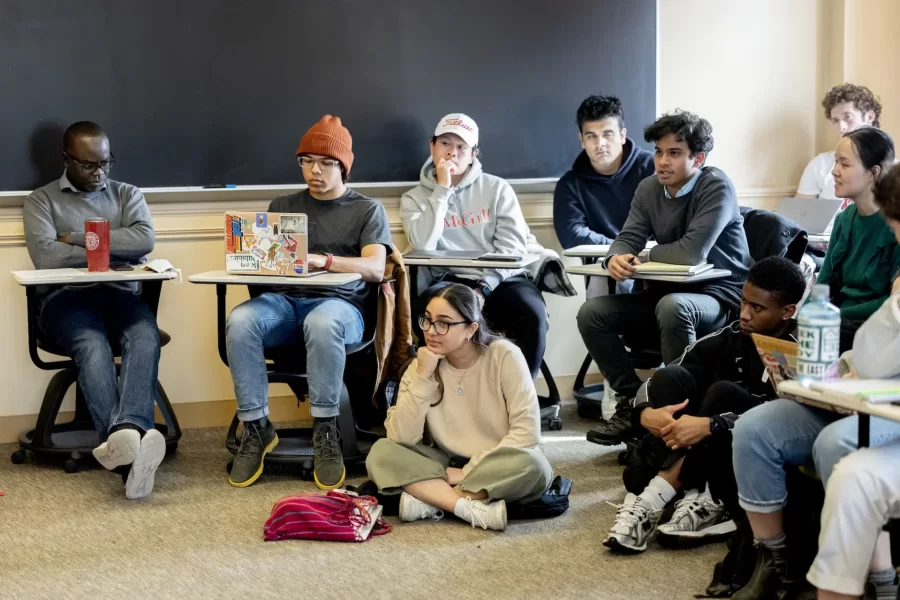
Guests from “Rwanda 30 Years After: Trauma Healing of Genocide Survivors and Intergenerational Trauma,” who spoke at the Olin Arts Center on Sunday, March 24, meet in a join session with faculty and students from three classes in Roger Williams 315 on March 25.
Speakers: From left, Esther Mujawayo, Chantal Kayitesi & Jean Bosco Rutagengwa
Organizer: Dept. of French and Francophone Studies, BatesCollege
Co-organizers: Rwandese Community Association of Maineand Ibuka-Maine
Co-sponsors: Dept. of History, Dept. of Politics, TheAfricana Club
&The Harward Center for Community Partnerships
The faculty and classes:
Representations of the Genocide against the Tutsi in Rwanda (FRE379 ADR Alex Dauge-Roth)
(Gender, Race, and Social Class in Francophone Films (FRE151 Laura Balladur) and Historical Methods (FRE399 Patrick Otim)
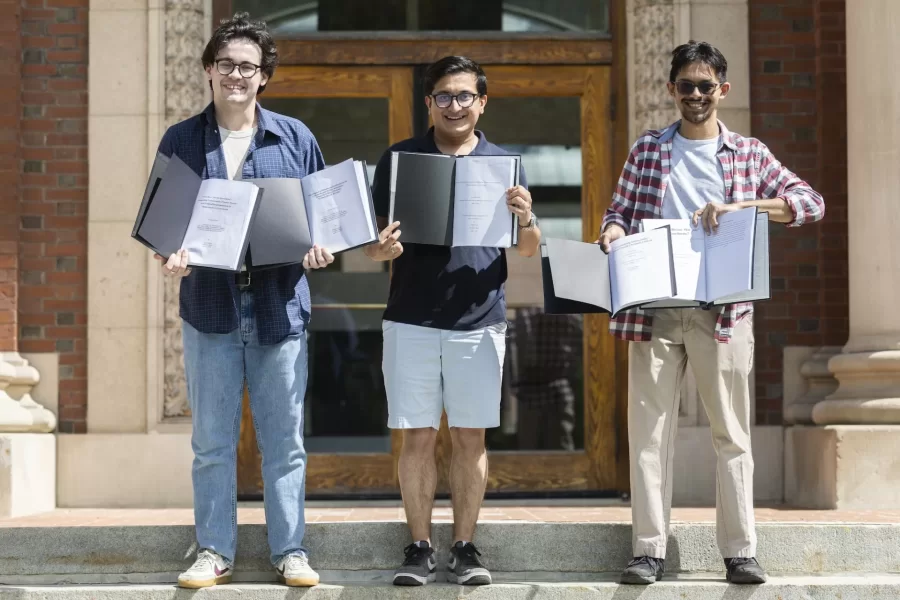
“The best things in life come in threes, like friends, dreams, and memories.”
— Mencius
Three seniors, (from left) Brady Chilson of Carlisle, Pa., Kush Sharma of South Burlington, Vt., and Trijit Pico Banerjee of Morristown, N.J., gathered before a group of friends on the steps of Coram Library on Friday, May 12, to bind their senior theses and launch a celebration.
Chilson produced two theses, one in English, another in politics: “Towards a ‘World Elsewhere’: Integrating Frameworks of Queer Theory and Political Representation in Shakespeare’s ‘Coriolanus’” and “The Impact of Electoral Institutions on Urban/Rural Policy Attitudes: Towards a More Holistic Urban-Rural Divide.”
Sharma wrote one honors thesis in theater: “Practicing a Collaborative Directing Style, Ecotheater, and Theater for Social Change with Madeleine George’s ‘Hurricane Diane.’”
Banerjee produced two honors theses, one in English, the other in philosophy: “Encountering Impossibility: George’s Bataille’s Acéphalic Lifework” and “Does the ‘Divine Marquis’ Subordinate? Pornographic Subordination in Literary Fiction.”
Swipe left for additional binding and cork-popping moments.
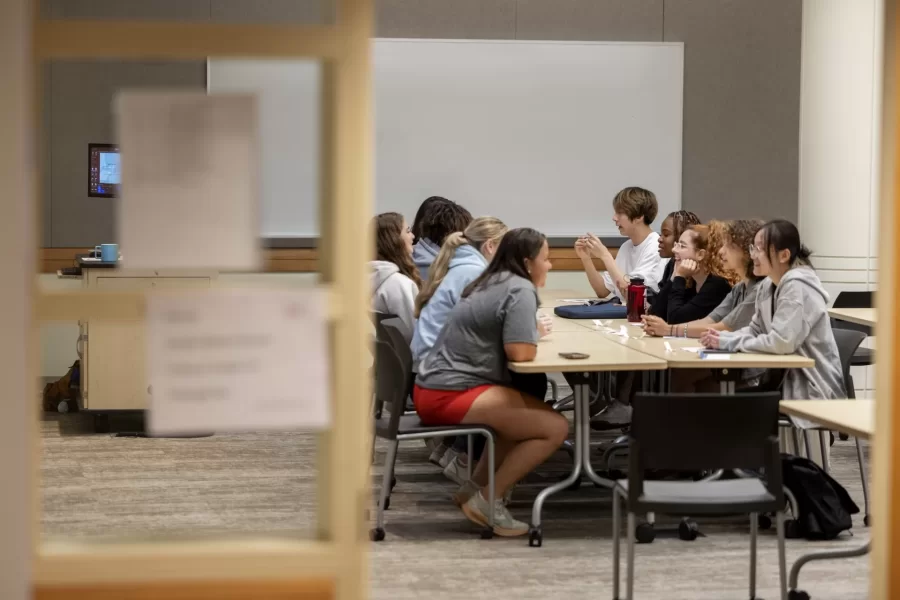
Moments from the First-Year Seminar Meeting and Advising with Seulgie Lim, assistant professor of politics, “Gender Without Borders” in Pettengill G65 on August 30, 2024.
(Theophil Syslo | Bates College)






